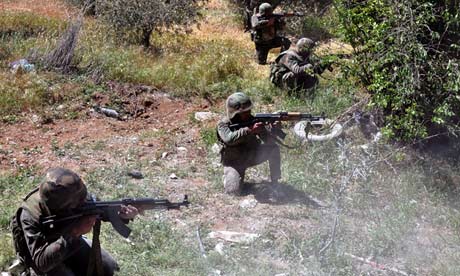By Mark O’Brien
Impunity Watch Reporter, North America
WASHINGTON, United States — China blasted the human rights record of the United States this week, blaming the U.S. military for infringing on rights on other countries around the world.

The criticisms, released Sunday in a report in China’s state news agency Xinhua, accused the United States of ignoring human rights abuses and employing a “double standards.”
“The lives and personal security of the United States citizens, who were haunted by serious violent crimes were not duly protected,” the report said. In particular, it emphasized the alleged degradation of women’s rights as reflected in rising numbers of domestic violence reports in 2012.
Analysts called the critical review of U.S. human rights a retaliation by Beijing to last week’s report by the U.S. State Department on human rights practices in countries around the world for 2012, decrying the Chinese government. Human rights have long been a contentious topic between the two countries.
“The U.S. has been using the human rights issue as a tool to bash other countries, which will affect the development of the human rights around the world,” said Chang Jian in an interview with People’s Daily Online. Jian is the executive deputy director of the Center for Human Rights Studies at Nankai University in Tianjin.
The Chinese accuse the U.S. reports as being negative toward other countries’ human rights situations, making them far from objective.
“Religious discrimination is also rapidly on the rise, with an increase in insults and attacks against Muslims,” the Chinese report added about the U.S. record.
The Chinese report also cited U.S. gun violence as an example of human rights violations, calling it a serious threat to the safety of American citizens. The claims also attacked the U.S. political process.
“American citizens do not enjoy a genuinely equal right to vote,” the report said. It cited a smaller turnout for last year’s presidential election and a voting rate of 57.5 percent.
China’s authoritarian government maintains tight controls over political activity, as well as religion and free speech, all of which are restrictions that the U.S. government considers to be human rights violations.
The annual U.S. global report on human rights said China recently imposed new requirements for potential government opposition groups to register with the government. It also accused China of trying to strengthen efforts to silence and intimidate political activists and public interest lawyers. The goal, the U.S. report said, was to prevent any public outcry of independent opinions.
For further information, please see:
China Daily USA — US ‘Turns a Blind Eye to Human Rights’ — 22 April 2013
Press TV — China Criticizes US Human Rights Record — 22 April 2013
RT — Beijing Slams US ‘Woeful Record of Human Rights’ — 22 April 2013
Yahoo! News — China Criticizes US for Its Human Rights Record — 21 April 2013

